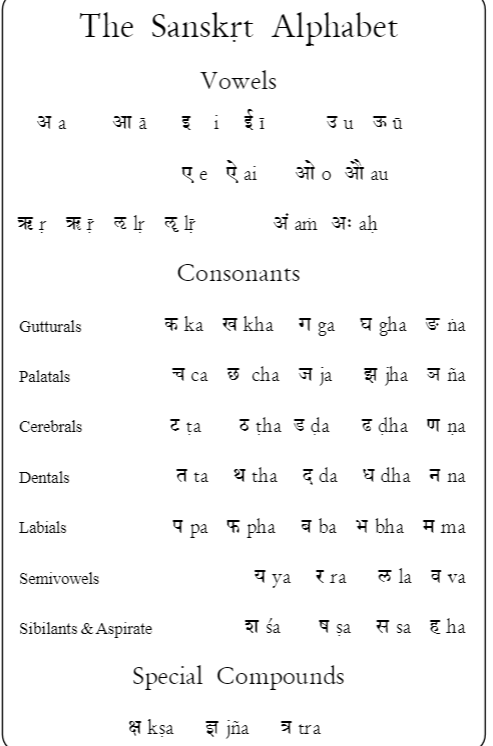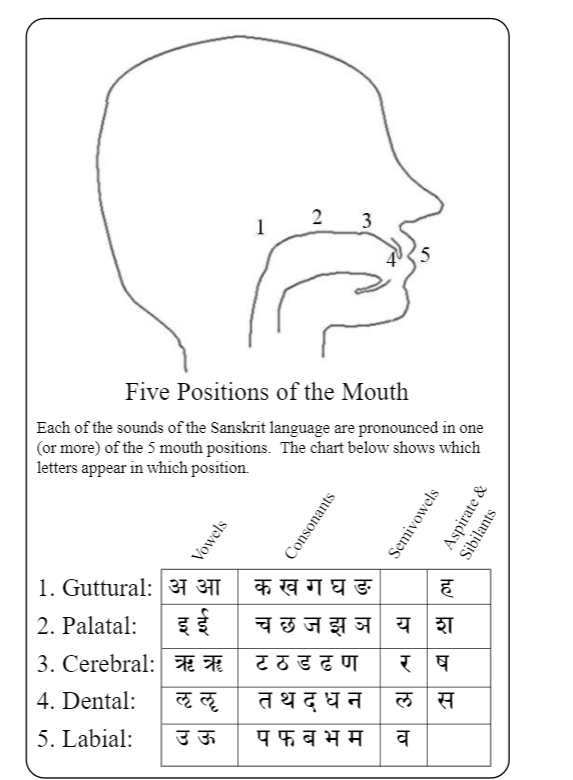[vc_row][vc_column][vc_column_text]
Sanskrit Langauge Course in Thane
[/vc_column_text][vc_separator color=”white” el_width=”10″][vc_column_text]
Sanskrit (the lost language of India)
[/vc_column_text][vc_column_text]Sanskrit is the classical language of Indian and the liturgical language of Hinduism, Buddhism, and Jainism. It is also one of the 22 official languages of India. One of the oldest Indo-European languages for which substantial documentation exists, Sanskrit is believed to have been the general language of the greater Indian Subcontinent in ancient times. It is still used today in Hindu religious rituals, Buddhist hymns and chants, and Jain texts.
The name Sanskrit means “refined”, “consecrated” and “sanctified. Sanskrit is a language spoken in ancient India (Bharat). Sanskrit is one of the oldest known. It is also called “Dev Vani” (the language of gods)
Sanskrit is originated as Vedic Sanskrit as early as 1700-1200 BCE and was orally preserved as a part of the Vedic chanting tradition.
The scholar Panini standardized Vedic Sanskrit into Classical Sanskrit when he defined the grammar, around 500 BCE.
Vedic Sanskrit is the language of the Vedas, the oldest scriptures of Hinduism.
Knowledge of Sanskrit became a marker of high social class during and after the Vedic Period.[/vc_column_text][vc_separator color=”white” el_width=”10″][vc_column_text]
Why Sanskrit is so important?
[/vc_column_text][vc_column_text]Sanskrit language course improves our thought processes by activating certain portions of our brain. Chanting Sanskrit texts creates an inner state of calmness and relaxation.
The highest advantage of the Sanskrit language course is that it opens up our minds to thousands of years old knowledge on practically any subject on this planet including Mathematics, Technology, Languages, Spirituality, Religion, Philosophy, Engineering, and Science…
The Sanskrit Language Course improves our brain’s thought patterns whereby we can more easily grasp new knowledge and concepts. This further results in better speech patterns and improved communication across multiple languages.
Sanskrit alphabets are carefully structured around numerous sounds that originate from our mouth, nose, and throat. This makes the language very structured and easy to grasp, though it often appears a bit complex for beginners.
As detailed by Rick Briggs, the tremendous precision and versatility of Sanskrit make it suitable for computer processing and artificial intelligence.
Words carry the same meaning irrespective of the context or where they are placed in a sentence. It is also possible to create short compound words or sentences in Sanskrit by combining many other simple words.
Sanskrit mantras are mind tools that help calm and purify one’s body, mind, and soul. Simply reciting the mantras or being in an environment where these mantras are recited creates sound vibrations that connect our mind and soul to the mantra’s inner state of being.
The ancient Ayurvedic philosophy, formulae, suggestions, herbs, herbal formulations, treatment methods, a lifestyle management protocol, and all medical instructions were first written down in Sanskrit. Since Ayurveda is codified using Sanskrit, a good knowledge of this language is crucial to properly understand the Ayurvedic texts.[/vc_column_text][vc_column_text]
Sanskrit Alphabets
[/vc_column_text][vc_column_text] [/vc_column_text][vc_separator][vc_column_text]
[/vc_column_text][vc_separator][vc_column_text]
[/vc_column_text][/vc_column][/vc_row]
